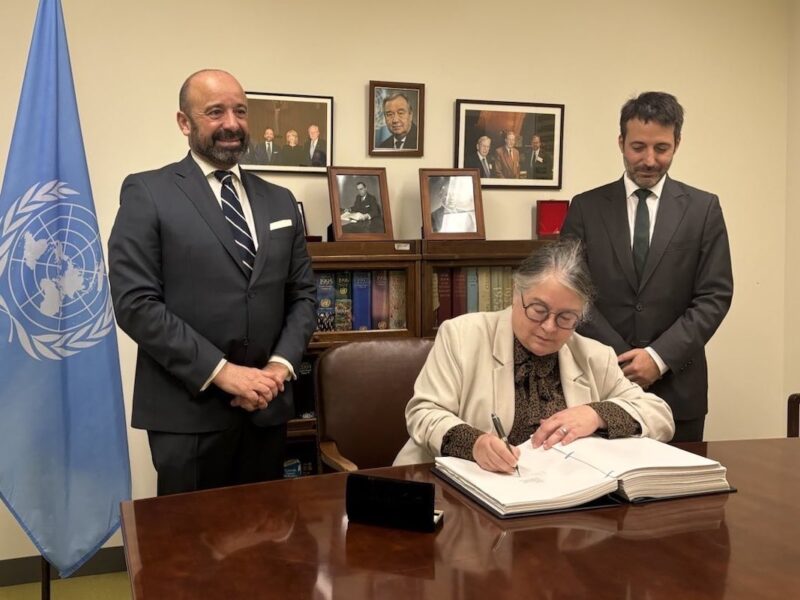Aquaculture top of mind at Seafood Expo North America
Fisheries Minister Diane Lebouthillier to lead Canadian delegation to Seafood Expo after meetings with US and UN officials to boost the ocean economy.
By Fabian Dawson
SeaWestNews
Discussions around aquaculture will be at the forefront of this year’s Seafood Expo North America, which has attracted an array of seafood-related professionals, companies and associations from over 50 countries, including Canada.
Diane Lebouthillier, Minister of Fisheries , who is on a 10-day visit to the United States, will lead the Canadian delegation to the Expo, which is the largest seafood event in North America. It will take place on Sunday, March 10 – Tuesday, March 12, 2024, at the Boston Convention and Exhibition Center.
“The United States is a trusted friend and ally, as well as our largest fish and seafood trading partner. Over the next few days, I look forward to meeting with American counterparts and stakeholders to deepen that unique relationship, which supports good jobs and drives our growth, innovation and competitiveness from coast to coast to coast,” Lebouthillier said in a statement.
The Expo’s three-day conference program will include a slate of more than 30 educational sessions featuring seafood, foodservice, retail, environmental, and governmental experts in panels and presentations covering a number of topics relevant to the seafood industry, according to event organizer, Diversified Communications.
It will also dive into the future of aquaculture, AI and its use in the seafood industry, chefs’ and restaurateurs’ stance on the use and purchase of frozen seafood, and the growing industry emphasis on value-added seafood.
“Discussions around aquaculture will be at the forefront of this year’s event, with panels such as “Aquaculture Today. Aquaculture Tomorrow” spotlighting the aquaculture industry, its current state and challenges and how businesses can best position themselves for growth,” the organizers said.
Other conference themes include how seafood companies can leverage social media and how to communicate sustainable practices to reach new and existing audiences.
Meanwhile, DFO said Minister Lebouthillier will meet with key stakeholders and U.S. government officials to promote Canada’s sustainable seafood, protect oceans and ocean life, and support clean growth in our ocean economy during her ongoing visit.
While in New York, Minister Lebouthillier will visit the United Nations (UN), where she will hear about how the UN is advancing Sustainable Development Goal 14 on Ocean Life and discuss Canada’s actions to advance this goal.
The U.N. Food and Agriculture Organization (FAO) recently called on nations to increase aquaculture production to fight global hunger and undernourishment.
The UN food agency said it hopes to see 35% growth in the sector by 2030 as part of the FAO’s “Blue Transformation” road map, which seeks to change the world’s aquatic food systems by the start of the next decade.
Minister Lebouthillier will also travel to Washington, D.C., where she will meet with Under Secretary of Commerce for Oceans and Atmosphere, and National Oceanic and Atmospheric Administration (NOAA) Administrator Dr. Richard W. Spinrad, and key stakeholders.
Her visit comes as the United States made public an updated National Aquaculture Development Plan to strengthen the nation’s commitment to food security, climate resilience, and the protection of threatened and endangered marine and freshwater species.
“In a changing climate, aquaculture is becoming increasingly important as a climate-smart and healthy means of food production. Seafood farming, if done responsibly—as it is in the United States—is one of the most environmentally sustainable ways to produce healthy food,” the NOAA said in a statement.
“In addition to providing a sustainable source of American-raised seafood, aquaculture plays an important role in fisheries restoration. Hatchery-reared fish (seedstock and fingerlings) are released into the wild to help bolster populations of wild marine species,” the agency said in a statement.
“Aquaculture has helped more than 70 endangered or threatened species, including Pacific Salmon, white abalone, and queen conch. In addition, it’s helped restore habitats and mitigate the impacts of climate change.”
The NOAA has invited the public to comment on the National Aquaculture Development Plan through April 5, 2024.
Canada is currently working on finalising an Aquaculture Act, aimed to streamline the numerous overlapping and complex processes that is hampering the sustainable growth of the country’s seafood farmers.
It remains the world’s only major farmed seafood producing country without modern national legislation specifically designed to govern a responsible and sustainable aquaculture industry.
The Federal Government is now also working with the industry, First Nations, coastal communities and other stakeholders to come up with a Transition Plan for salmon farming in British Columbia.
So far at least 10 government studies and a range of court rulings have stated that the salmon farms have less than a minimal impact on migrating wild stocks in BC’s waters.
Aside from the Transition Plan, the government is currently considering extending existing salmon farming licences to operate for a period of between two and six years. The permits to operate the farms are set to expire at the end of June.
Currently in BC, all existing salmon farms are supported by the First Nations communities that they operate in.
(Submitted image shows Fisheries Minister Diane Lebouthillier in New York signing the Agreement under the United Nations Convention on the Law of the Sea on the Conservation and Sustainable Use of Marine Biological Diversity of Areas beyond National Jurisdiction (the BBNJ Agreement).

